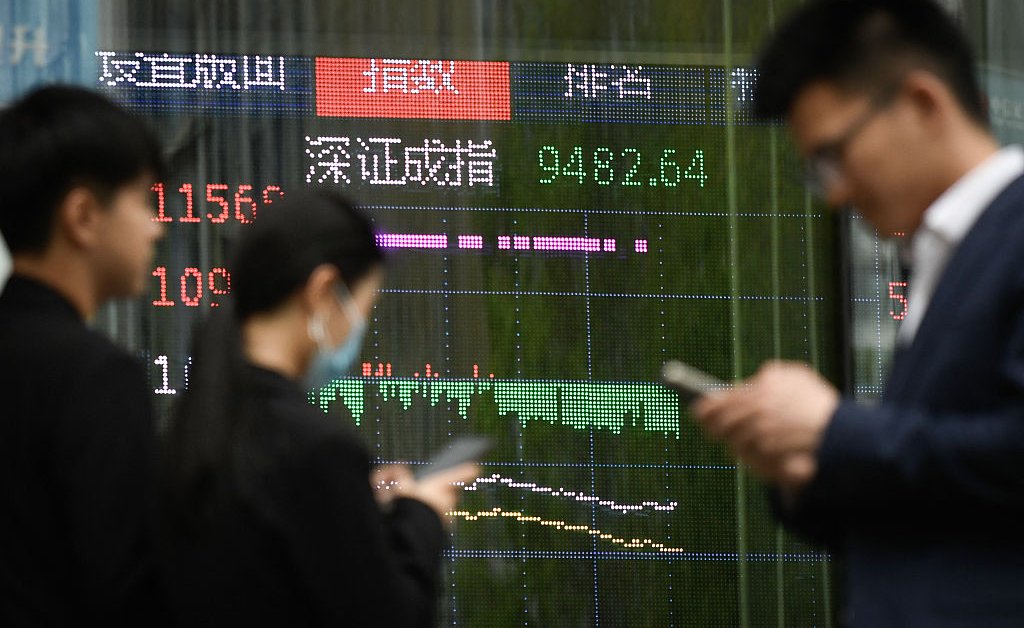Trade War: China's Unlikely Defeat
The US-China trade war, a tumultuous period marked by escalating tariffs and political tensions, initially painted a picture of a protracted battle with uncertain outcomes. While China initially appeared resilient, a closer examination reveals a more nuanced narrative suggesting an unexpected degree of vulnerability and ultimately, a strategic defeat, albeit one with long-term implications. This article delves into the key factors contributing to China's relative setbacks in the trade war, exploring the economic ramifications and broader geopolitical consequences.
Beyond Tariffs: The Deeper Economic Impacts
The immediate impact of the trade war was felt through tariffs, which disrupted supply chains and increased prices for both American and Chinese consumers. However, the damage extended far beyond simple tariff hikes. China's reliance on exports, particularly to the US market, left it significantly exposed.
Weakened Export-Oriented Growth Model:
For decades, China's economic growth hinged on exporting manufactured goods. The trade war exposed the fragility of this model. Reduced exports led to slower GDP growth, impacting employment and investment, particularly in sectors heavily reliant on US demand. This forced China to re-evaluate its economic strategy, accelerating the shift towards domestic consumption—a process that is proving complex and lengthy.
Technological Dependence and Innovation Gaps:
The trade war highlighted China's dependence on foreign technology, particularly in critical sectors like semiconductors. US restrictions on the sale of advanced technology to Chinese companies exposed significant vulnerabilities in China's technological ecosystem. While China has made strides in technological self-reliance, the gap remains substantial, hindering its long-term economic aspirations. This forced a redirection of resources towards domestic technological development, but the results are still unfolding.
Foreign Investment Deterioration:
The uncertainty created by the trade war discouraged foreign investment in China. Companies hesitated to commit to projects in a volatile environment, impacting China's access to capital and advanced technologies. This contributed to a slowdown in overall economic growth and further emphasized the need for internal economic reforms.
Strategic Implications and Geopolitical Shifts
Beyond the economic impacts, the trade war significantly altered the geopolitical landscape.
Shifting Global Alliances:
The trade war pushed many countries to choose sides, albeit often implicitly. Some nations sought to diversify their supply chains to reduce dependence on either the US or China, highlighting the growing multipolarity of the global economy. This created new opportunities for countries to position themselves strategically within a reshaped global trading system.
Rise of Protectionism and Regional Trade Agreements:
The trade war fueled a resurgence of protectionist sentiment globally. Countries increasingly looked inwards, prioritizing domestic industries and seeking regional trade agreements as alternatives to the multilateral system. This fragmentation of global trade poses challenges to the long-term stability of the international economic order.
Accelerated Domestic Reform in China:
While the trade war presented significant challenges, it also acted as a catalyst for internal reforms within China. The pressure to diversify the economy, enhance technological self-reliance, and boost domestic consumption has prompted significant policy changes. Whether these reforms will be sufficient to overcome the structural vulnerabilities exposed by the trade war remains to be seen.
Conclusion: A Pyrrhic Victory?
While the US certainly aimed for a decisive victory, and arguably achieved some of its goals in terms of forcing concessions from China and exposing vulnerabilities, the trade war was far from a clean win. The damage inflicted on the global economy, including setbacks for China, highlights the inherent risks of such large-scale economic conflicts. The long-term consequences are still unfolding, with the world grappling with the lingering effects of trade disruptions and geopolitical realignment. China's relative defeat underscores the importance of balanced trade relations and the need for a more cooperative international economic framework. The ultimate impact will depend on how effectively both the US and China adapt to the dramatically changed economic and geopolitical landscape.
